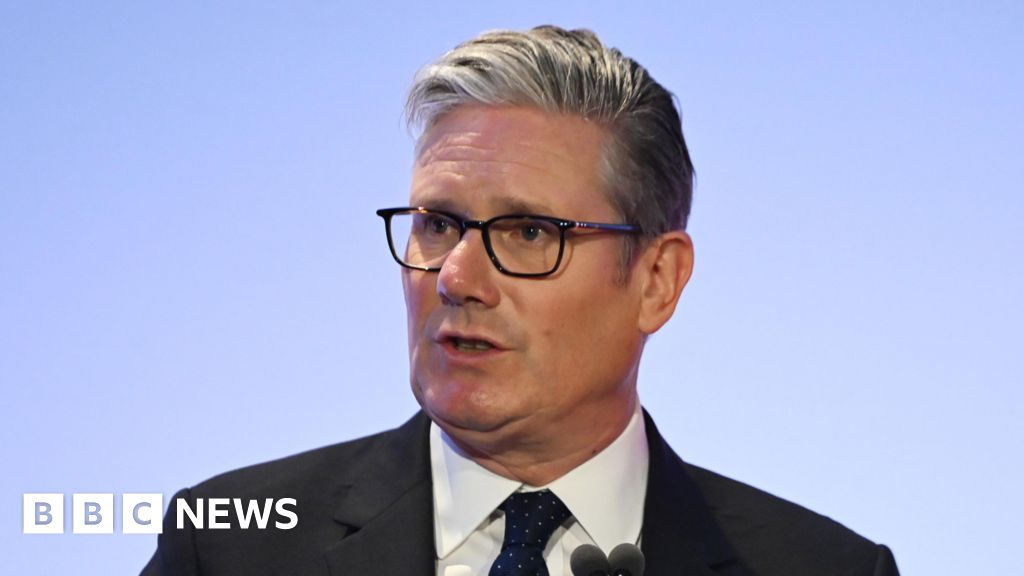RFK Jr.’s New Advisers Rescind Recommendations for Some Flu Vaccines


Critics saw in the move the beginnings of a more restrictive approach to providing vaccines to Americans. An advisory panel recently appointed by Health Secretary Robert F. Kennedy Jr. voted on Thursday to walk back longstanding recommendations for flu vaccines containing an ingredient that the anti-vaccine movement has falsely linked to autism. The vote signaled a powerful shift in the way federal officials approach vaccines, putting into action Mr. Kennedy’s deep skepticism about their safety and delivering the first blows to a scientific process that for decades has provided effective vaccines to Americans. Mr. Kennedy fired all 17 experts on the panel about two weeks ago, and then appointed eight new members, at least half of whom have expressed skepticism about some vaccines. “We came to this meeting with no predetermined ideas, and will make judgments as if we are treating for our own families,” the panelists said in a statement. To critics, the two-day meeting of the Advisory Committee on Immunization Practices offered the clearest signs yet that the Trump administration intends to unravel the system that has long guided clinical decisions about vaccination. “As a physician and scientist who has devoted my entire career to vaccines and preventing and treating infections, this meeting has been devastating to watch,” said Dr. Lakshmi Panagiotakopoulos, an expert on vaccines who resigned from the Centers for Disease Control and Prevention earlier this month. Dozens of studies have shown the vaccine ingredient, called thimerosal, to be harmless. It has not been a component of most childhood shots since 2001. “The risk from influenza is so much greater than the nonexistent risk as far as we know from thimerosal,” said the lone dissenter, Dr. Cody Meissner, a professor of pediatrics at Dartmouth Geisel School of Medicine who is widely considered to be the most qualified member of the new committee. “I find it very hard to justify” the panel’s decision, he added. In a separate vote, the new panel recommended seasonal flu vaccines to all Americans 6 months and older. The common single-dose flu shots do not contain thimerosal. The committee advises the C.D.C. on vaccine efficacy and safety, and it makes recommendations regarding who should receive a vaccine and when. Insurance companies and government programs like Medicaid are required to cover immunizations that the C.D.C. recommends, and states base their school mandates on the agency’s guidance. In addition to certain flu vaccines, some panelists on Thursday questioned the safety of other products that have already been approved by the Food and Drug Administration and thoroughly vetted by independent experts. Others seemed unaware of basic information about the Vaccines for Children program, which provides free immunizations to roughly half of all American children. “It’s striking how little the voting members seem to know about the diseases and vaccines that they are discussing,” said Dr. Adam Ratner, a pediatric infectious diseases specialist and expert on vaccine policy. During the deliberations on a vaccine for respiratory syncytial virus, known as R.S.V., one of the panelists, Dr. Robert Malone, said that there had been “very, very active discussion and consideration within the committee, just for the record, concerning this product.” “It has been very actively debated internally,” he said. Outside experts interpreted his remarks to mean that panelists had been privately discussing the topic among themselves, something that they are not legally allowed to do. “In other contexts, off-record conversations have been grounds for overturning a decision,” said Dorit Reiss, an expert on vaccine policy and law at the University of California College of the Law, San Francisco. “Though it reflects lack of understanding of their limits, it’s unlikely to lead to overturning,” she added. A spokesman for the Health and Human Services Department said that Dr. Malone had been referring to a one-on-one conversation between Dr. Malone and another panelist, which was “permissible.” Presentations at the meetings are generally made by C.D.C. staff members. But among the speakers on Thursday was Lyn Redwood, a former leader of Children’s Health Defense, the anti-vaccine group founded by Mr. Kennedy. Ms. Redwood, who has been hired as a special employee at the Health and Human Services Department, alleged in the meeting that thimerosal was toxic and dangerous to children. (She said that she was making the comments as “a private citizen.”) A scientific review of evidence demonstrating the safety of thimerosal was posted online by C.D.C. scientists on Tuesday but taken down shortly thereafter. “Giving someone like Lyn Redwood a voice at the A.C.I.P. meeting to spread misinformation about a long-settled matter of vaccine safety is yet another troubling way in which R.F.K. Jr. is inappropriately interfering with the C.D.C. vaccine policy process,” said Dr. Fiona Havers, who resigned last week from her position as a senior C.D.C. adviser on vaccine policy. On Wednesday, The New York Times reported that Ms. Redwood’s presentation incorrectly said the only flu vaccine still containing thimerosal had 50 micrograms per dose, double the actual amount. That slide was removed from the version Ms. Redwood offered on Thursday, but the inaccurate information was repeated in a different slide. Her presentation had also initially included references to studies that did not exist; that slide was also removed. During the 2024-25 respiratory virus season, only 3 percent of children and 2 percent of older adults received flu vaccines containing thimerosal, according to an analysis of electronic health records by Truveta. Dr. Meissner sharply objected to Ms. Redwood’s comments. “I’m not quire sure how to respond to this presentation,” he said. “This is an old issue that has been addressed in the past.” “There is no scientific evidence that thimerosal has caused a problem,” he added. Liaisons to the A.C.I.P. from several organizations, including the American College of Obstetricians and Gynecologists, also challenged the idea that thimerosal is toxic. In another unusual move, Martin Kulldorff, the panel’s chair, proposed that the members vote to stop allowing the use of a vaccine for measles, mumps, rubella and chickenpox for children under 4. That combination vaccine has been available since 2005. It slightly increases the risk of febrile seizures, which can occur with any childhood illness but do not cause lasting harm. The C.D.C. already recommends administering the M.M.R. shot and the chickenpox shot separately in the first dose. The panelists are expected to vote on the vaccine’s use at a future meeting. The committee sounded a skeptical note with its very first vote on Thursday. Clesrovimab is a new monoclonal antibody approved by the F.D.A. this month to protect infants from R.S.V. infection. The committee’s vote on recommending it was expected to be straightforward, as clesrovimab is not technically a vaccine. But a new panel member, Retsef Levi, a professor of operations science at the Massachusetts Institute of Technology, said that he would like to discuss some data he “had found” from clinical trials that raised concerns about deaths in children receiving the product. Experts from the C.D.C. and the F.D.A., and the vaccine’s manufacturer, all said the data had been reviewed very carefully before the antibody’s approval and did not reveal any association between the deaths and the product. Experts watching the proceedings were incensed. “These trials have been discussed at length at prior meetings, and the questions were answered to the satisfaction of all of the members,” said Dr. Sean O’Leary, the chair of the infectious disease committee at the American Academy of Pediatrics, and a member of the R.S.V. work group convened by the C.D.C. Dr. Meissner, the panelist who dissented in the vote on flu vaccines, noted that the work group of 60 experts, including himself, had reviewed the safety data “very, very carefully.” He defended both the monoclonal antibody and an R.S.V. vaccine for pregnant women as valuable new tools. R.S.V. is the leading cause of hospitalizations in infants. “We have come so far in the last few years in making these products available, and really it’s a result of the extraordinary investigations,” Dr. Meissner said. Safety, he added, “is simply not an issue here.” Another monoclonal antibody, nirsevimab, sharply reduced R.S.V. hospitalizations among infants during the 2024-25 season, and so far it does not appear to pose serious safety concerns, according to data presented at the meeting on Wednesday. Dr. Levi and Vicky Pebsworth, a nurse affiliated with an anti-vaccine group, voted against recommending clesrovimab; the other five members voted yes. After some confusion, the panel also voted to include the antibody in the children’s vaccine program. Some panelists also raised concerns about a flu vaccine that would be offered to everyone aged 9 and older. As of June 14, flu was associated with 250 deaths in children in the United States, according to data presented on Thursday. Dr. Malone called that a “modest number,” but some experts noted that the number of deaths was the highest in a nonpandemic year in a long time, and almost certainly an undercount.
What's Your Reaction?
 Like
0
Like
0
 Dislike
0
Dislike
0
 Love
0
Love
0
 Funny
0
Funny
0
 Angry
0
Angry
0
 Sad
0
Sad
0
 Wow
0
Wow
0





![Des drones IA révolutionnent la lutte contre le paludisme [Business Africa]](http://static.euronews.com/articles/stories/09/24/88/24/640x360_cmsv2_c81b5378-a4d6-5b79-a296-06f4879024b5-9248824.jpg?1746029817#)
































